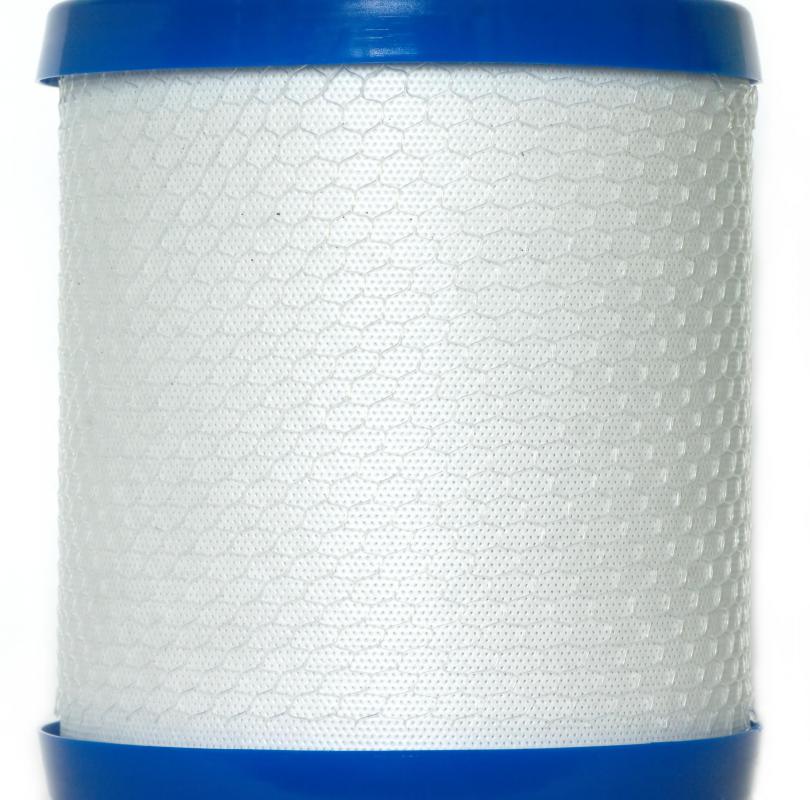At WiseGEEK, we're committed to delivering accurate, trustworthy information. Our expert-authored content is rigorously fact-checked and sourced from credible authorities. Discover how we uphold the highest standards in providing you with reliable knowledge.
What is a Chlorine Filter?
A chlorine filter is used to remove dissolved chlorine from water. The typical chlorine filter is a carbon filter containing a layer of carbon granules or block encased in a canister or plastic shell. These filters are either spherical or cylindrical in shape.
The activated carbon inside a chlorine filter is made from charcoal. This type of filtering material is extremely porous and absorbent of chlorine and other substances. A manufactured chlorine filter is pre-assessed by its dechlorination half-value length, which is how efficiently it removes chlorine.

A chlorine filter is commonly found in water softeners. It works on the principle of ion exchange with the help of activated carbon and resins. Some chlorine filters are based on galvanic reactions in which chlorine is converted to a harmless compound as it passes between zinc and copper electrodes.
Another type of chlorine filter uses zeolite, which further enhances its performance. This kind of filter finds application in bathroom showers, water softeners, and other types of water treatment and purification equipment. A newer type of chlorine filter contains silver to kill bacteria, as these microbes accumulate in the filter over time.

Large chlorine filters can be installed in house basements and medical facilities such as dialysis centers. Small types are installed in kitchen and bathroom faucets and shower heads. A chlorine filter is sometimes packaged as part of more complex water purification equipment that features ozonation and reverse osmosis to produce safer water.
Chlorine present in bathing and drinking water can cause harmful effects like irritated lungs, cell damage, and skin-related problems. Dechlorinating shower filters remove most of the chlorine present in water. This can help prevent the skin from becoming rough and dehydrated and avoid allergic reactions caused by the chemical.
Normally, chlorine filters last from one to one and a half years. Their life depends on the chlorine content removed, the electrochemical reactions that occur during the removal, and the presence of other ions like fluorine. As chlorine and bacteria fill up the pores of a filter, it becomes less efficient and can pose danger, as these substances can leak from the filter into drinking water.
Chlorine is implicated by research to cause allergies and certain types of cancer. There is rising public concern that challenges the safety of chlorine as a standard water treatment chemical. As a result, chlorine filters have seen rising demand since the early 1980s.
AS FEATURED ON:
AS FEATURED ON:












Discuss this Article
Post your comments